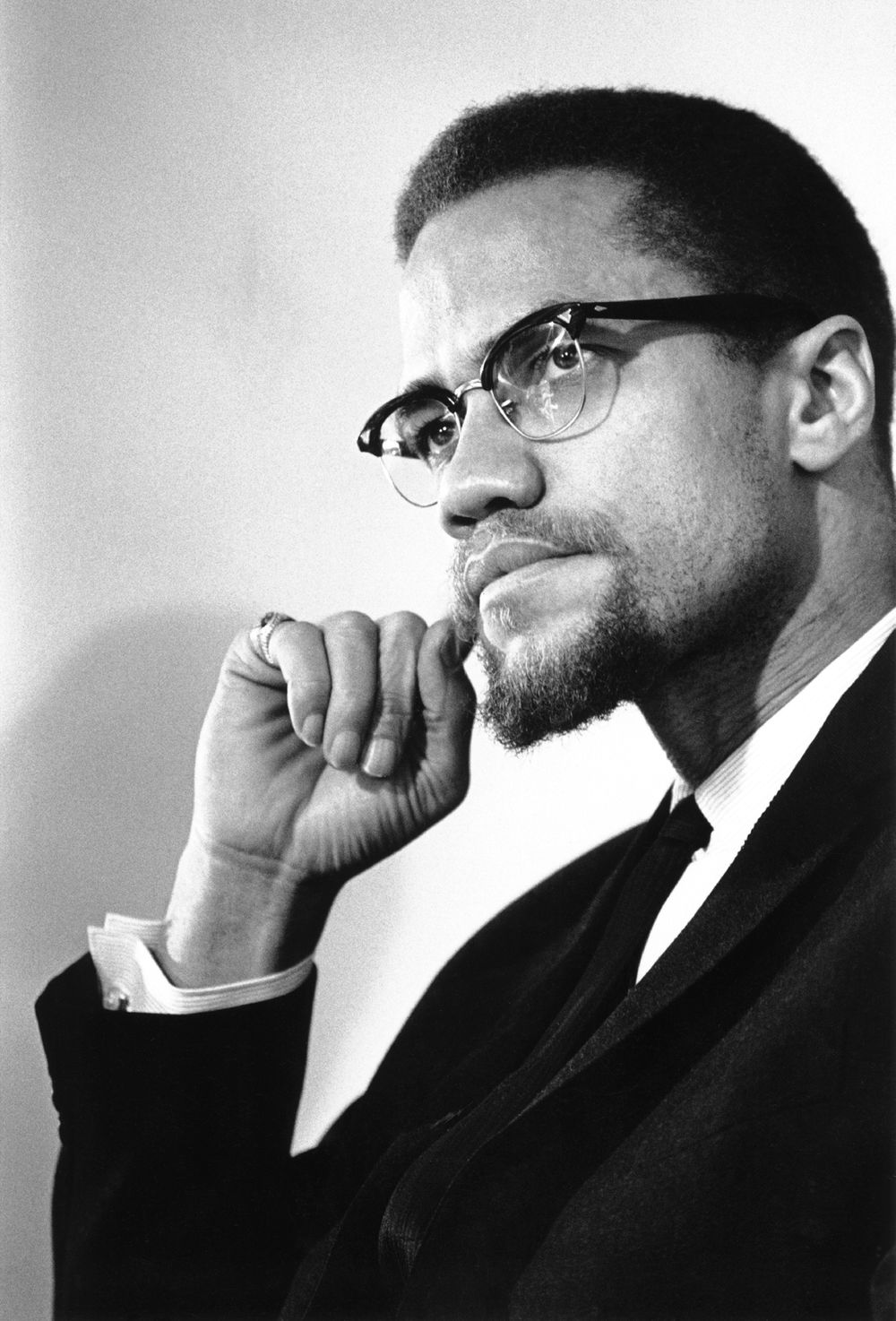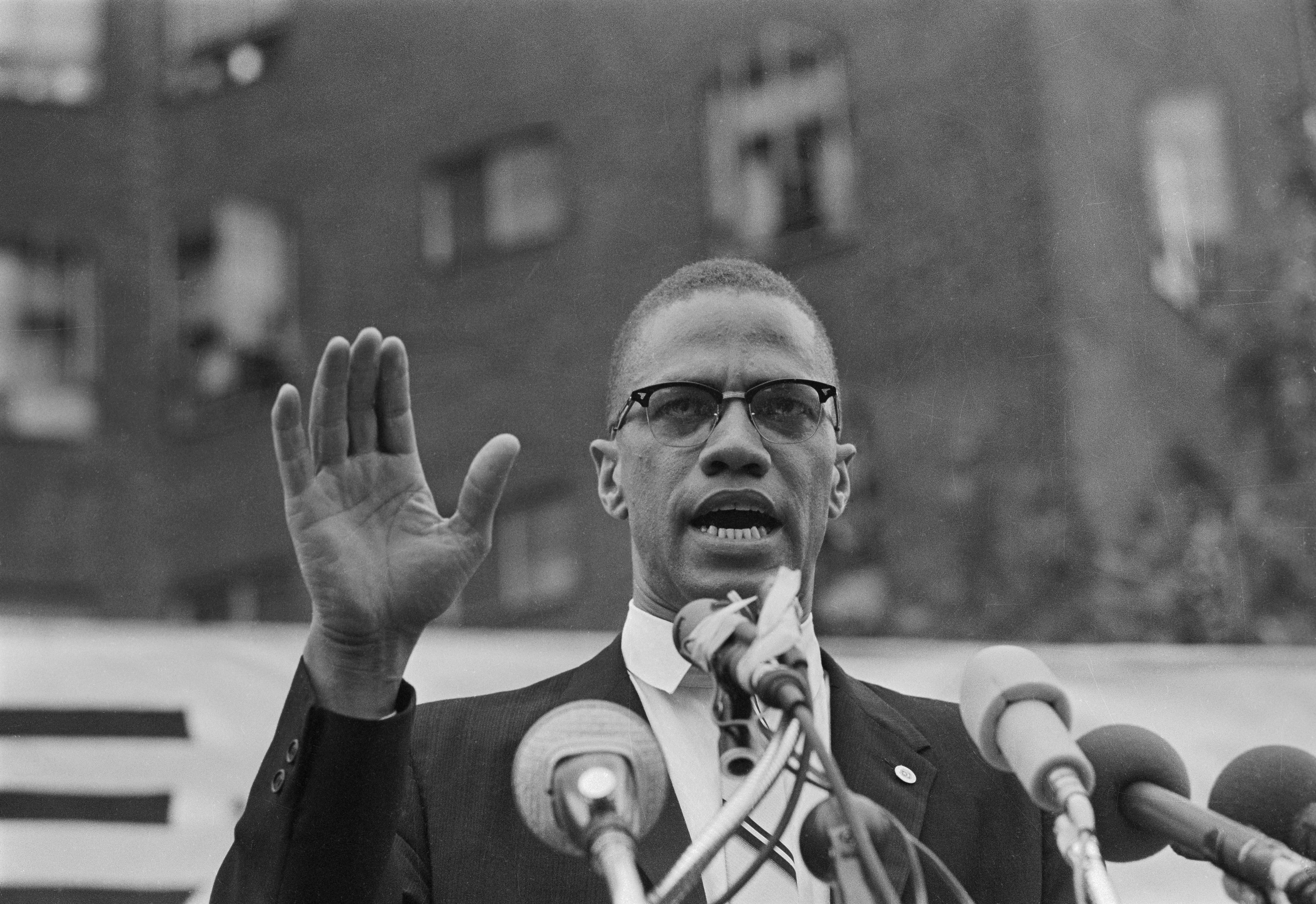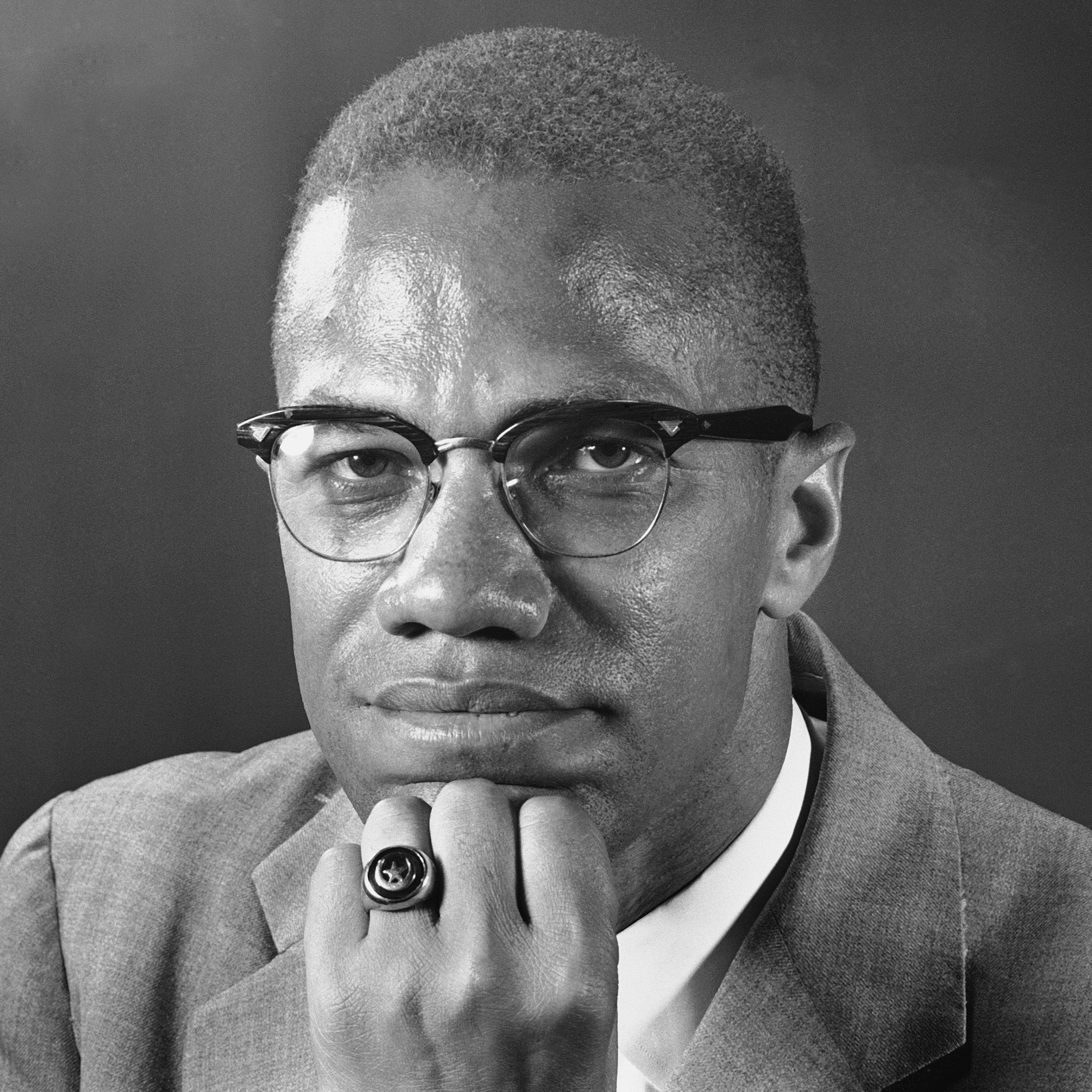Malcolm X - A Life Of Change And Purpose
Have you ever stopped to think about the lives of people who really changed things, those who stood up and made a big difference? Well, there are some figures whose stories just stick with you, long after they've gone. One such person, whose journey truly shaped a pivotal time in American history, was Malcolm X. His path, you know, was one of incredible transformation and a deep commitment to what he believed in.
From his earliest days as Malcolm Little, born in Omaha, Nebraska, on a spring day in 1925, his life was set against a backdrop of significant social shifts. His parents, Louise and Earl Little, were trying to build a life, moving north to get away from the difficult racial situations in places like Nebraska. They made their way first to Milwaukee, Wisconsin, and then, you know, to other spots, always seeking a better place for their family.
Malcolm X became a very important voice during the civil rights period of the 1950s and 1960s. He was a religious figure, a civil rights advocate, and someone who could really speak to people, captivating listeners with his powerful words. His thoughts and ideas, in a way, became very well known, making him a central person in discussions about fairness and equality for Black people in the United States.
Table of Contents
- A Look at the Life of Malcolm X
- Personal Details and Bio Data of Malcolm X
- What Was Malcolm X's Early Life Like?
- How Did Prison Shape Malcolm X?
- Malcolm X and the Nation of Islam
- Why Did Malcolm X Break From the Nation of Islam?
- The Enduring Influence of Malcolm X
- Important Sayings from Malcolm X
A Look at the Life of Malcolm X
Malcolm X, originally known as Malcolm Little, began his life in Omaha, Nebraska, on May 19, 1925. He was the fourth child born to Louise and Earl Little. His mother, Louise, was a homemaker, and she also held a significant role as the national recording secretary for the Marcus Garvey movement, a group that, you know, had millions of followers. This early connection to a movement focused on Black self-reliance and pride might have, in some respects, planted some seeds for his future activism, even if indirectly.
His family's decision to move north was a direct response to the difficult racial situations they faced. They sought a different environment, first settling in Milwaukee, Wisconsin, and then moving on. This search for a better place, a safer place, really, was a common story for many Black families during that time, especially as the Great Depression was making things incredibly tough for everyone. Malcolm X, like so many others, grew up during this period, which was a time of great economic hardship and social unrest. It’s almost as if the very air he breathed as a young person was filled with the struggle for a fair shake.
As he grew older, Malcolm X became a truly important person in the civil rights movement that swept across the United States in the 1950s and 1960s. He was, you know, a very influential figure, someone whose ideas and actions had a real impact. His views, which he expressed with such force and clarity, became widely known. He was, quite honestly, a religious figure, a leader in the fight for civil rights, and a speaker who could command attention, making him a central voice during a time of big changes.
Personal Details and Bio Data of Malcolm X
| Birth Name | Malcolm Little |
| Born | May 19, 1925 |
| Birthplace | Omaha, Nebraska |
| Parents | Louise Little and Earl Little |
| Known For | Civil Rights Activist, Religious Leader, Orator |
| Key Affiliation | Nation of Islam (formerly) |
What Was Malcolm X's Early Life Like?
Malcolm Little, as he was known then, was born into a family that was, you know, already connected to important movements for Black people. His mother, Louise, played a very active role in the Marcus Garvey movement, which was a big deal at the time, attracting millions of people who wanted to see Black communities empowered. This background, you might say, set a kind of foundation for him, even if he didn't fully grasp it as a young boy.
The family's decision to move from Nebraska was a direct attempt to get away from the racism that was so present there. They were seeking a place where they could live with more dignity and less fear. This quest for safety and a better life led them first to Milwaukee, Wisconsin, and then to other places. This constant movement, in a way, shows the difficult circumstances many Black families faced during that period, always searching for a true home free from oppression. It was a time when, you know, the country was really grappling with its own issues of fairness and equality, and Malcolm's family was right there in the middle of it.
Growing up during the Great Depression meant that life was incredibly tough. Resources were scarce, and opportunities were hard to come by for almost everyone, but especially for Black families facing discrimination. This experience of hardship and the struggle for basic needs must have, in some respects, shaped his perspective on society and the challenges faced by his community. It's almost as if these early experiences laid the groundwork for his later desire to speak out and fight for justice, you know, to make things better for others who were struggling.
How Did Prison Shape Malcolm X?
Malcolm Little's time in prison was, quite honestly, a period of profound change for him. When he began serving a sentence in 1946, he met someone who would have a truly significant impact on his life: John Bembry. Bembry, you know, taught him how important it was to get an education, to learn and to grow. This idea of learning, of educating oneself, really took root in Malcolm during his time behind bars. It was a turning point, you could say, a moment when he started to see the world differently.
While in prison, Malcolm X also became familiar with the Nation of Islam (NOI). This group, a religious organization, would become a central part of his life for many years. It was during this period that he, along with two other men, became members of the Nation of Islam. This connection provided him with a new framework for understanding the world, a different way of looking at things, and a sense of belonging. It gave him, in a way, a purpose and a direction that he hadn't had before. So, his time in jail, which might seem like a setback, was actually a period of deep personal and intellectual growth for Malcolm X.
The quiz mentioned in "My text" brings up interesting points about this period, like why he changed his last name and how he spent his time in jail. These questions really highlight the transformative nature of his prison experience. It wasn't just about serving time; it was about, you know, a complete shift in his outlook and his identity. This period shows how a person can find, in a way, a path to self-improvement and a new direction even in the most difficult circumstances. It's a powerful part of the Malcolm X story, showing how he truly dedicated himself to learning and to a new way of life.
Malcolm X and the Nation of Islam
Malcolm X became a core member of the Nation of Islam (NOI), a religious organization that, you know, played a very big part in his life for a good while. As a prominent figure within the NOI, his views became widely known during the civil rights era. He was a talented speaker, someone who could really get his message across, and he used this skill to share the NOI's teachings and perspectives with a broader audience. This made him, in some respects, a very public face for the group, drawing attention to their ideas and their calls for self-sufficiency and empowerment for Black people.
His involvement with the Nation of Islam provided him with a platform to speak about racial injustice and to advocate for Black pride and self-defense. He was, quite honestly, a very powerful voice, and his words resonated with many who felt unheard and unseen. The NOI offered a different approach to the civil rights struggle, one that emphasized self-reliance and, you know, a distinct identity for Black Americans. Malcolm X was instrumental in articulating these ideas, making him a highly visible and, for some, a very inspiring figure.
During his time with the NOI, he led significant events, like the Unity Rally in Harlem on June 29, 1963. This event was, you know, one of the biggest civil rights gatherings the nation had seen. It brought together many people who were passionate about the cause, demonstrating the widespread support for the ideas that Malcolm X and the NOI were putting forward. He also had a notable connection with boxer Cassius Clay, befriending him and providing spiritual guidance, which eventually led to Clay's decision to embrace Islam. This connection further highlighted Malcolm X's influence, showing how his ideas reached across different parts of society.
Why Did Malcolm X Break From the Nation of Islam?
In 1964, Malcolm X made a very significant decision: he chose to leave the Nation of Islam. This was a huge step, you know, considering how deeply involved he had been with the group for so long. After this break, he decided to undertake the Muslim pilgrimage of Hajj, which meant traveling all the way to Mecca in Saudi Arabia. This trip was, in a way, a pivotal moment for him, opening his eyes to new perspectives and understandings of Islam and the world.
While making his pilgrimage, Malcolm X experienced something truly transformative. He saw Muslims of all different skin colors, from all parts of the world, worshipping together as equals. This experience, you know, challenged some of the ideas he had held while with the Nation of Islam, particularly their emphasis on racial separation. It was a profound realization for him, seeing the unity and brotherhood among people from various backgrounds, all sharing the same faith. This exposure to a broader, more inclusive form of Islam had a very deep impact on his views and his approach to racial issues.
His journey to Mecca, in some respects, marked a shift in his philosophy. He began to speak more about universal human rights and the possibility of racial harmony, rather than focusing solely on Black nationalism. This change in his thinking, you know, made him an even more complex and, for some, a more relatable figure. The break from the NOI and his pilgrimage showed his willingness to grow, to learn, and to adapt his beliefs based on new experiences and deeper insights. It was a testament to his intellectual honesty and his ongoing quest for truth, even if it meant moving away from what was once familiar.
The Enduring Influence of Malcolm X
Malcolm X was, without a doubt, a highly polarizing figure during his lifetime. His strong opinions and his uncompromising stance on racial justice often sparked intense reactions, both positive and negative. Yet, despite the controversies that surrounded him, his impact on the civil rights movement and on the broader conversation about race in America is undeniable. His words and actions, you know, forced people to confront uncomfortable truths about society and its treatment of Black citizens.
Even after his assassination, his ideas continued to resonate. Spike Lee's biographical movie about Malcolm X, based on interviews conducted by Alex Haley, really brought his story to a new generation. Haley turned those interviews into "The Autobiography of Malcolm X," a book that has become, in a way, a very important text for understanding his life and his thoughts. The purpose of such assets, you know, is to help people, especially students, think critically about this very important leader and the ideas he stood for.
His legacy is not just in books and movies; it's in the ongoing discussions about race, power, and justice. His call for self-respect, self-defense, and community empowerment continues to inspire. You know, there are those who feel it's their duty to keep his memory and his teachings alive, making sure his contributions are not forgotten. The fact that his image and words are still sought after for licensing opportunities, represented by groups like CMG Worldwide, really speaks to his lasting presence in our culture. It shows how, in a way, his influence still reverberates, making him a figure who continues to prompt thought and discussion about fairness and human dignity.
Important Sayings from Malcolm X
Malcolm X was known for his powerful and direct way of speaking, and his quotes often capture the essence of his beliefs. These sayings, you know, are still widely shared and discussed today, showing how relevant his ideas remain. They offer a glimpse into his mind and his perspective on the world, particularly on issues of principle and self-respect. He had a knack for putting complex ideas into simple, memorable phrases that really stuck with people.
One of his most famous statements is, “A man who stands for nothing will fall for anything.” This quote, you know, speaks to the importance of having strong beliefs and convictions. It suggests that without a clear set of principles, a person is easily swayed or misled. It's a call to stand firm in what you believe, to have a moral compass that guides your actions. This idea, in a way, reflects his own journey and his unwavering commitment to his cause, especially in his later years.
Another very impactful quote from Malcolm X is, “We are nonviolent with people who are nonviolent with us.” This saying, you know, clarifies his stance on self-defense. It suggests a reciprocal approach to interaction, implying that while he advocated for peace, he also believed in the right to protect oneself when faced with aggression. This particular quote often sparks discussion, as it highlights a different aspect of the civil rights movement's strategies, focusing on the right to defend oneself against harm. It's a very direct statement, and it really gets you thinking about what it means to stand up for yourself.
He also famously said, “Don’t be in a hurry to…” (The provided text cuts off here, but this phrase often precedes advice about not being quick to judge or to act without thought.) This snippet, you know, hints at a more reflective side of Malcolm X, suggesting a wisdom that encourages careful consideration rather than impulsive decisions. It's a reminder that, in some respects, patience and thoughtful action can be more effective than haste. These quotes, you know, offer just a small window into the mind of a person who thought deeply about justice, identity, and the human condition.

Malcolm X Quotes: 74 Quotes To Make You Stop and Think About Life

Malcolm X Nation Of Islam

Nation Of Islam Malcolm X